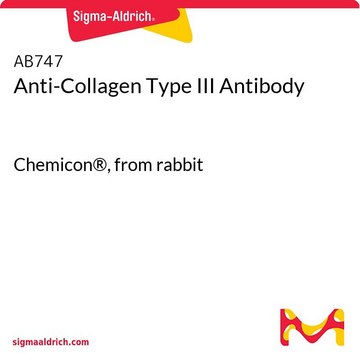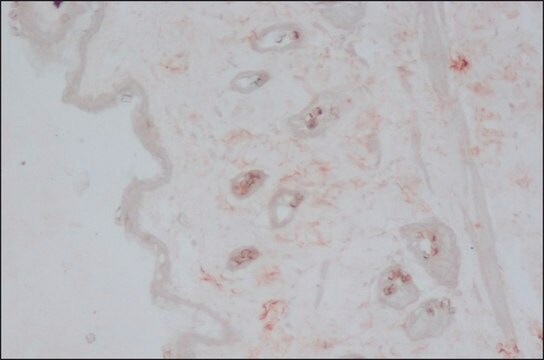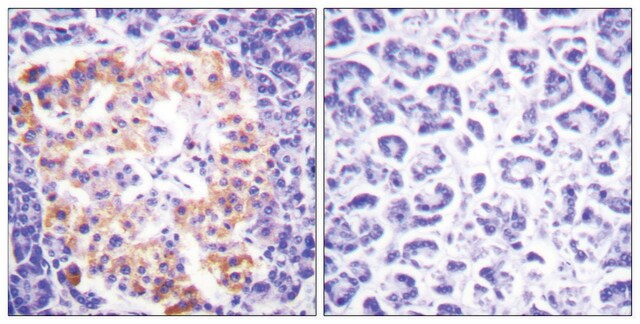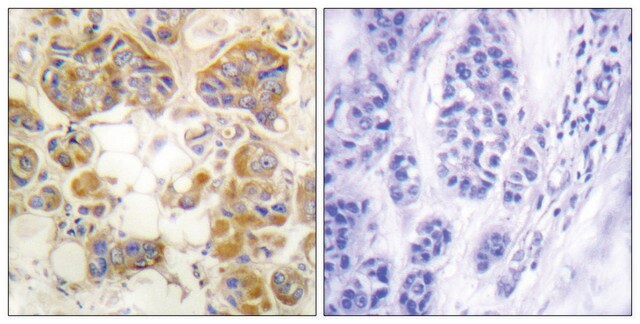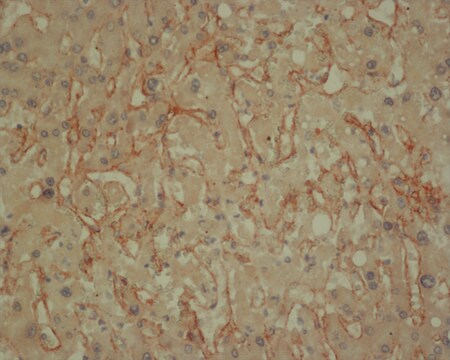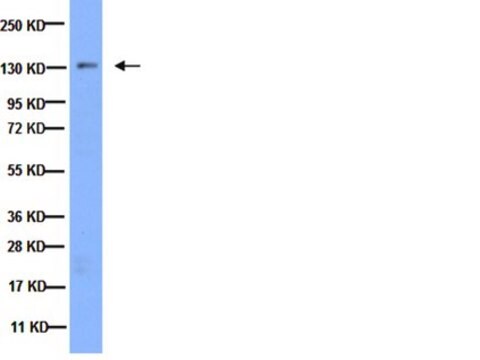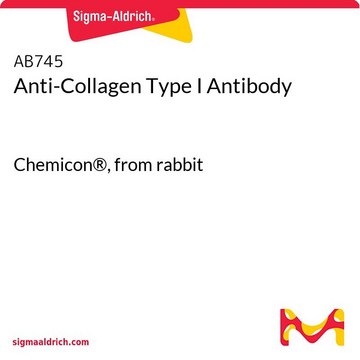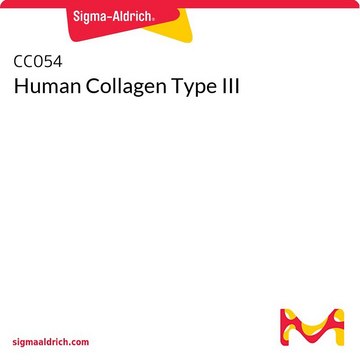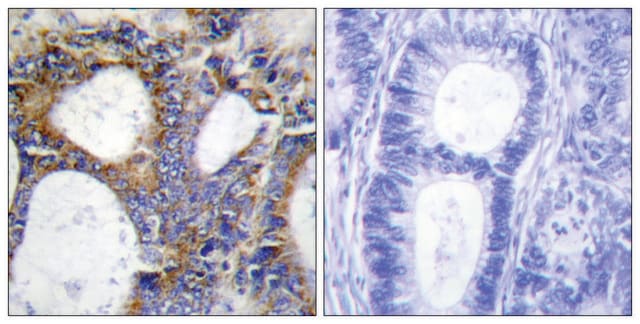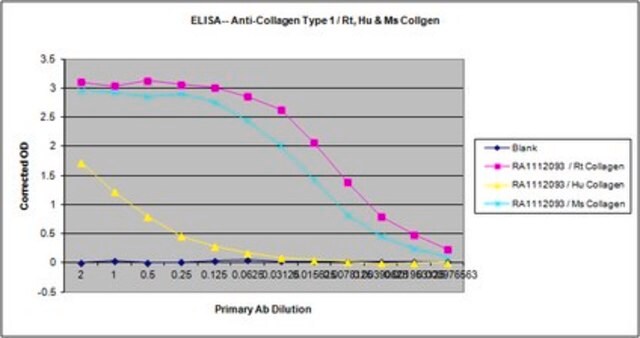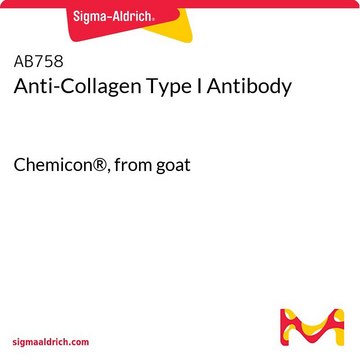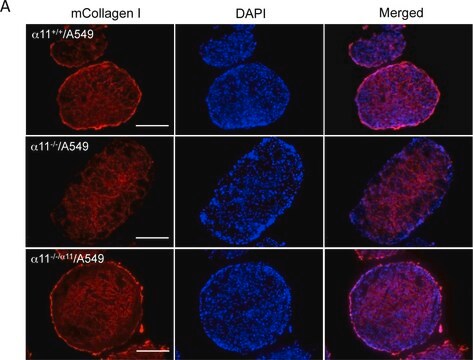C7805
Anti-Collagen Type III (COL3A1) Antibody
mouse monoclonal, FH-7A
Synonym(e):
Anti-Collagen III antibody
About This Item
Empfohlene Produkte
Produktbezeichnung
Monoclonal Anti-Collagen, Type III antibody produced in mouse, clone FH-7A, ascites fluid
Biologische Quelle
mouse
Konjugat
unconjugated
Antikörperform
ascites fluid
Antikörper-Produkttyp
primary antibodies
Klon
FH-7A, monoclonal
Mol-Gew.
antigen 70 kDa
Enthält
15 mM sodium azide
Speziesreaktivität
human, rat
Methode(n)
dot blot: suitable
immunohistochemistry (frozen sections): 1-4,000 using frozen sections of human skin
indirect ELISA: suitable
western blot: suitable using a denatured-reduced preparation
Isotyp
IgG1
UniProt-Hinterlegungsnummer
Versandbedingung
dry ice
Lagertemp.
−20°C
Posttranslationale Modifikation Target
unmodified
Angaben zum Gen
human ... COL3A1(1281)
rat ... Col3a1(84032)
Allgemeine Beschreibung
Spezifität
Immunogen
Anwendung
Biochem./physiol. Wirkung
Haftungsausschluss
Sie haben nicht das passende Produkt gefunden?
Probieren Sie unser Produkt-Auswahlhilfe. aus.
Empfehlung
Lagerklassenschlüssel
10 - Combustible liquids
WGK
WGK 2
Flammpunkt (°F)
Not applicable
Flammpunkt (°C)
Not applicable
Hier finden Sie alle aktuellen Versionen:
Analysenzertifikate (COA)
Die passende Version wird nicht angezeigt?
Wenn Sie eine bestimmte Version benötigen, können Sie anhand der Lot- oder Chargennummer nach einem spezifischen Zertifikat suchen.
Besitzen Sie dieses Produkt bereits?
In der Dokumentenbibliothek finden Sie die Dokumentation zu den Produkten, die Sie kürzlich erworben haben.
Kunden haben sich ebenfalls angesehen
Unser Team von Wissenschaftlern verfügt über Erfahrung in allen Forschungsbereichen einschließlich Life Science, Materialwissenschaften, chemischer Synthese, Chromatographie, Analytik und vielen mehr..
Setzen Sie sich mit dem technischen Dienst in Verbindung.
